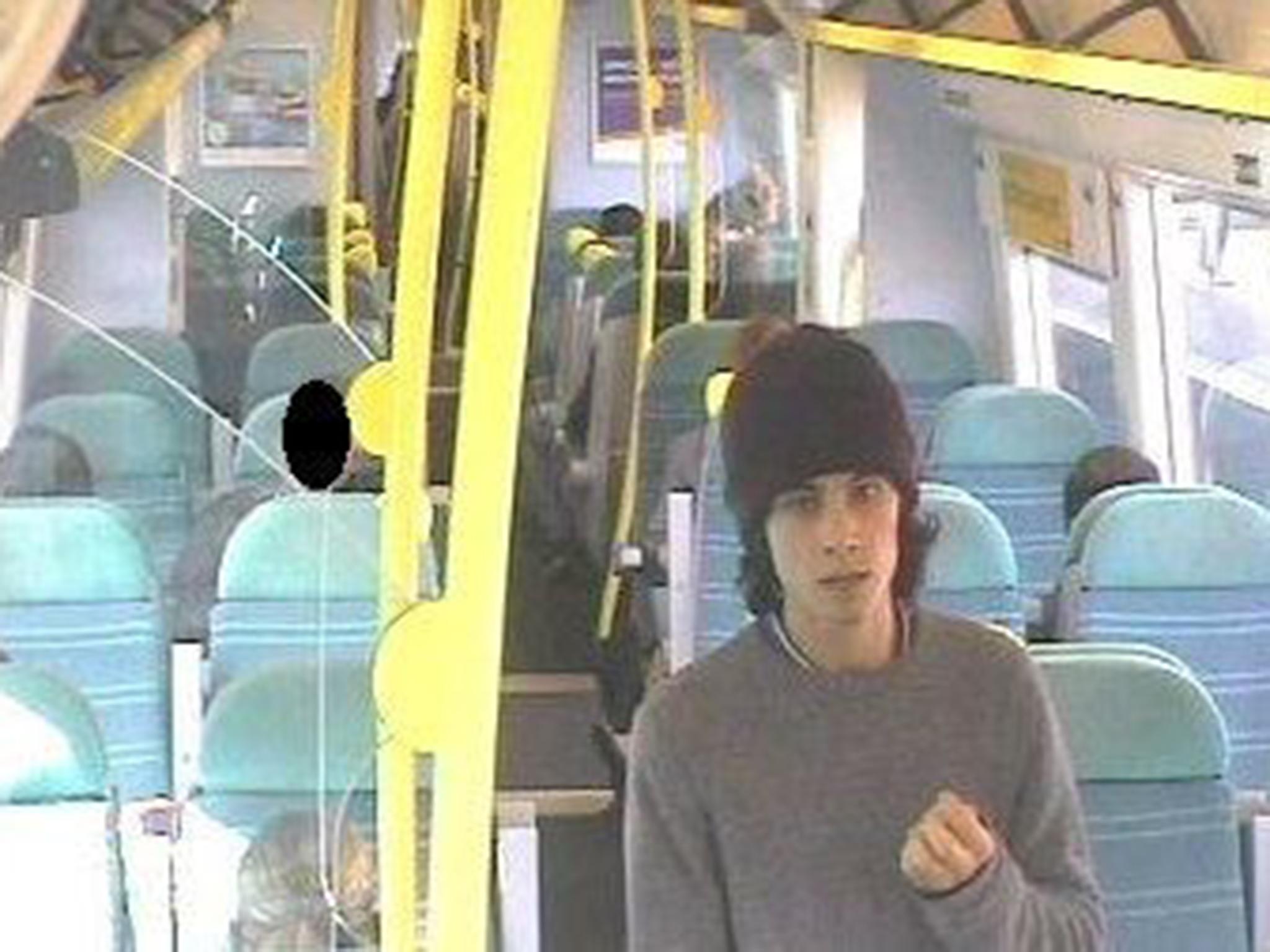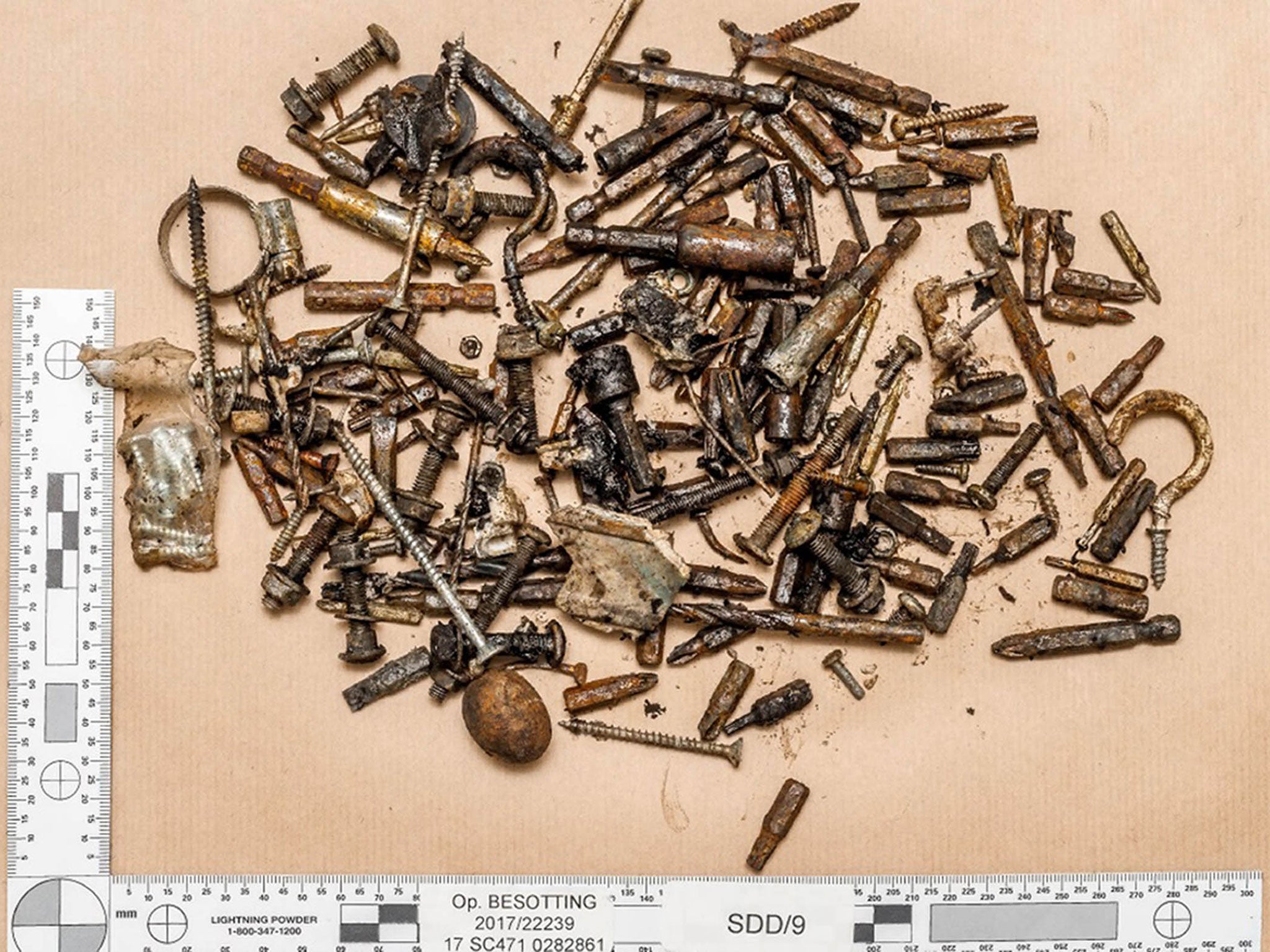Anti-terror officials discussed closing Parsons Green attacker's case 10 days before Tube bombing
'No violent ideology was confirmed' despite teenager telling police he had been trained as an Isis child soldier
Your support helps us to tell the story
From reproductive rights to climate change to Big Tech, The Independent is on the ground when the story is developing. Whether it's investigating the financials of Elon Musk's pro-Trump PAC or producing our latest documentary, 'The A Word', which shines a light on the American women fighting for reproductive rights, we know how important it is to parse out the facts from the messaging.
At such a critical moment in US history, we need reporters on the ground. Your donation allows us to keep sending journalists to speak to both sides of the story.
The Independent is trusted by Americans across the entire political spectrum. And unlike many other quality news outlets, we choose not to lock Americans out of our reporting and analysis with paywalls. We believe quality journalism should be available to everyone, paid for by those who can afford it.
Your support makes all the difference.Officials from the government’s counter-extremism programme Prevent discussed stopping monitoring the Parsons Green attacker 10 days before he tried to bomb a Tube train, it has emerged.
Iraqi teenager Ahmed Hassan had been referred to the scheme after telling police he had been trained as an Isis child soldier in his home country, with teachers and social workers later raising the alarm after finding him watching violent propaganda videos and making extremist statements.
But an internal review by police and Surrey County Council found “no violent ideology was confirmed” by officials meant to monitor the student and turn him away from radicalisation.
Hassan had been referred to the Prevent strategy’s intervention programme, Channel, which formally met to discuss his case nine times between June 2016 and September 2017 but did not request ideological mentoring.
Instead, officials focused on his academic success at Brooklands College in Surrey, where he was considered a model student, as a “significant protective factor”.
But Hassan was leading a double life and even used a voucher awarded for being named “student of the year” to buy bomb-making materials from Amazon.
Police who interviewed Hassan twice did not raise concern he could become involved in terrorism, instead believing he was making “positive progress”.
The panel in charge of his case did not take full account of red flags such as the teenager repeatedly going missing from his foster home and suffering from depression and post-traumatic stress disorder, the review found.

Hassan had arrived in Britain illegally on a lorry from Calais in October 2015 and his asylum claim had still not been decided at the time of the attack, with the review warning the delay may have had an impact on his radicalisation.
“There was an apparent lack of a formal, documented plan to manage and mitigate Hassan’s vulnerabilities and associated risks,” concluded Sir Philip Rutnam, permanent secretary at the Home Office.
“The Channel panel were unable to establish a holistic overview taking into account the entirety of Hassan’s turbulent background, mental health concerns, and ongoing behaviour and remarks.
“The final meeting took place on the 5 September 2017. Considering the ongoing vulnerability assessment and intelligence update, the Channel panel was in the process of considering closure of Hassan’s case.”
Ten days later, the teenager detonated a homemade bomb on a packed rush hour Tube train, injuring more than 50 commuters after a fireball hurtled through the carriage and caused a stampede at Parsons Green station.
Hassan’s trial heard it was “sheer luck” the device, which was packed with a large quantity of explosives and metal shrapnel, did not fully detonate as it could have killed dozens of people.
The teenager, who was 18 at the time, got off the District Line train before the timed explosion and attempted to flee Britain before being caught by police in the port of Dover.
In March, Hassan was jailed for life with a minimum of 34 years by a judge who found he was driven by a “mindset of Isis extremism”, a deep-seated hatred of Britain and a desire for revenge over the death of his father during the Iraq War and continued bombing of his home country.
During an interview in January 2016, Hassan had told officials he had been “trained to kill” by Isis and indoctrinated in “what Allah believed was right”.
He told his college mentor it was his “duty to hate Britain” and she raised the alarm after seeing a WhatsApp message on his phone reading “IS [Islamic State] has accepted your donation”.
Hassan had been caught watching an Isis propaganda video and listening to nasheeds (Islamic songs) which were subsequently identified by The Independent as the group’s official propaganda.
The Home Office said the panel of experts tasked with monitoring him failed to follow guidance on record-keeping, the frequency of vulnerability assessments and intelligence updates.
Channel rules state that live cases must be discussed every month and reassessed every three, but there was no meeting on Hassan between January and June last year.
In a series of recommendations, it called for mental health practitioners to attend Channel meetings and said leaders should assign specialist “intervention providers” to suspected radicals even when they cannot identify a distinct ideology.
New extremism and intelligence training is being given to immigration staff and asylum applications from potential radicals flagged to Channel are to be sped up.

Yvette Cooper, who requested information on the review as chair of the Home Affairs Committee, said it exposed a “series of failings in the operation of the Channel programme”.
“Concerns raised by a Channel member in January 2017 based on Hassan’s ‘demeanour and behaviour’ also appear not to have been acted upon, and interventions that could have been considered were not,” the Labour MP added.
“It is crucial that the Channel programme works effectively to deal with individuals who could pose a serious risk to public safety or national security. We will pursue with ministers why there were problems in this case and what further action is needed to improve the way the programme operates in future.”
Ben Wallace, the security minister, said the Home Office, Surrey County Council and police had taken “swift action to address the issues raised” by the review.
“The Home Office and partner organisations have accepted the majority of the recommendations and following this case we had already put in place processes to ensure better communication between immigration and Prevent partners, as well as reviewing how Channel procedures are monitored,” he added.
“We should not allow this case to undermine all the good work taking place across the country to stop terrorism and our work to help those who are legitimately in need.”
More than 330 people were supported by Channel in the 2016-17 financial year with interventions to divert them away from radicalisation, Mr Wallace said.
Around 55 per cent were suspected Islamists and 37 per cent from the extreme-right wing, with around 80 per cent leaving the process with no terror-related concerns, but a fifth pulling out.
Only 5 per cent of the total number of people flagged as a concern to Prevent receive support from Channel. The most recent statistics show a third of referees were assessed to require no further action and 45 per cent were given help through alternative services like housing and education.

Join our commenting forum
Join thought-provoking conversations, follow other Independent readers and see their replies
Comments